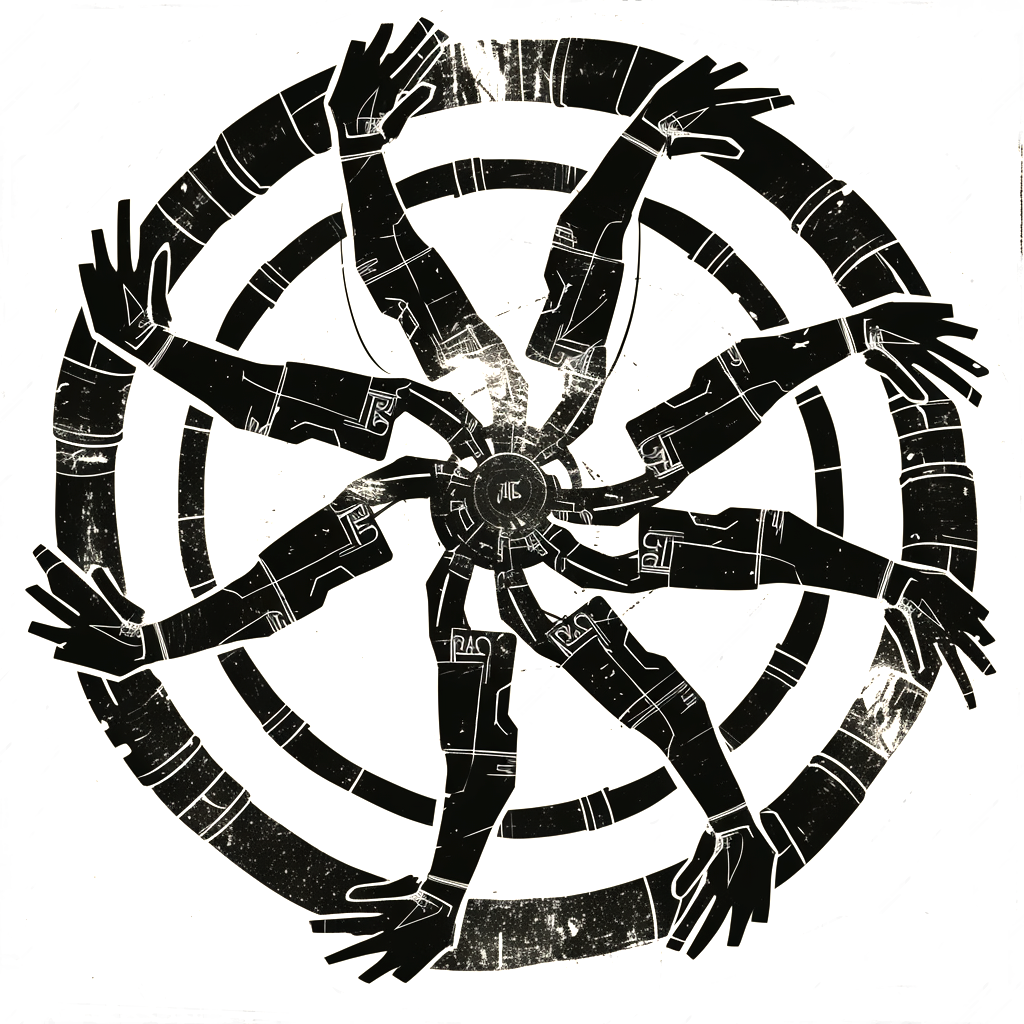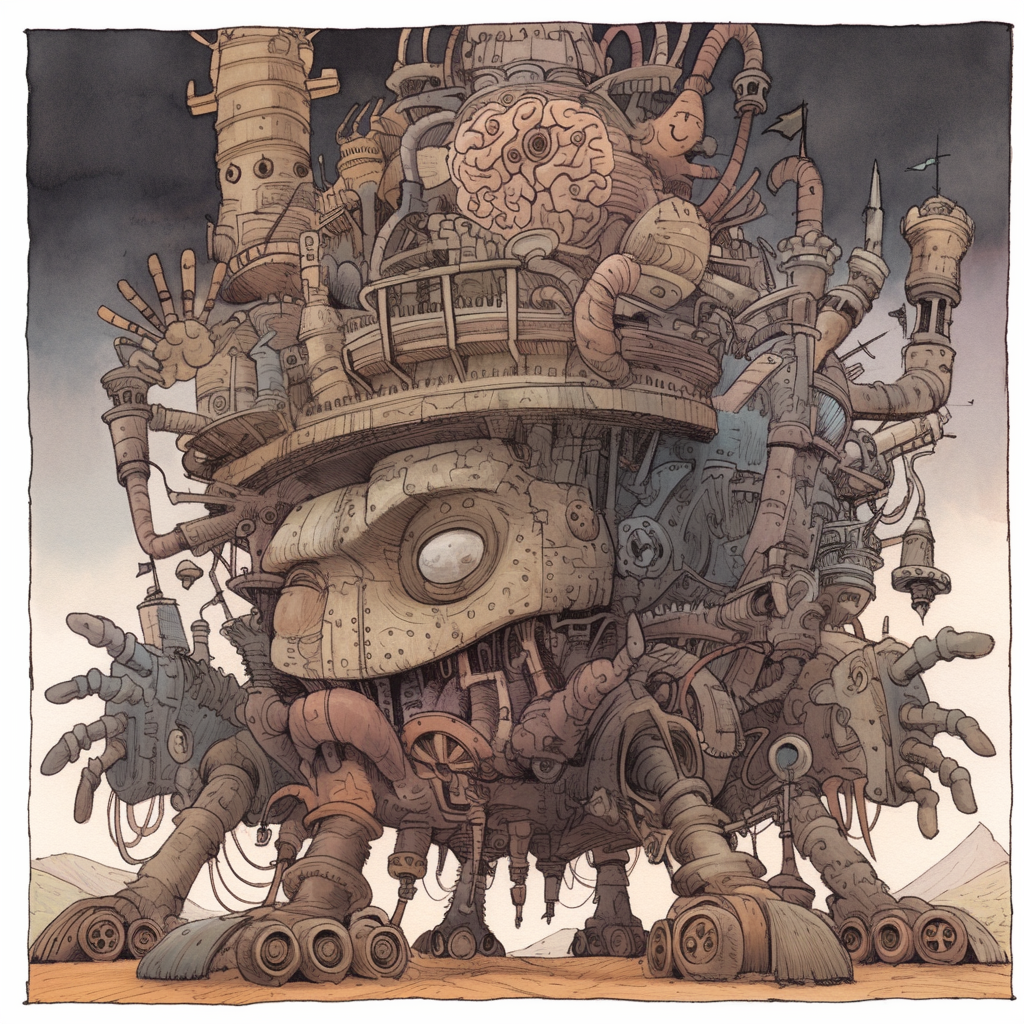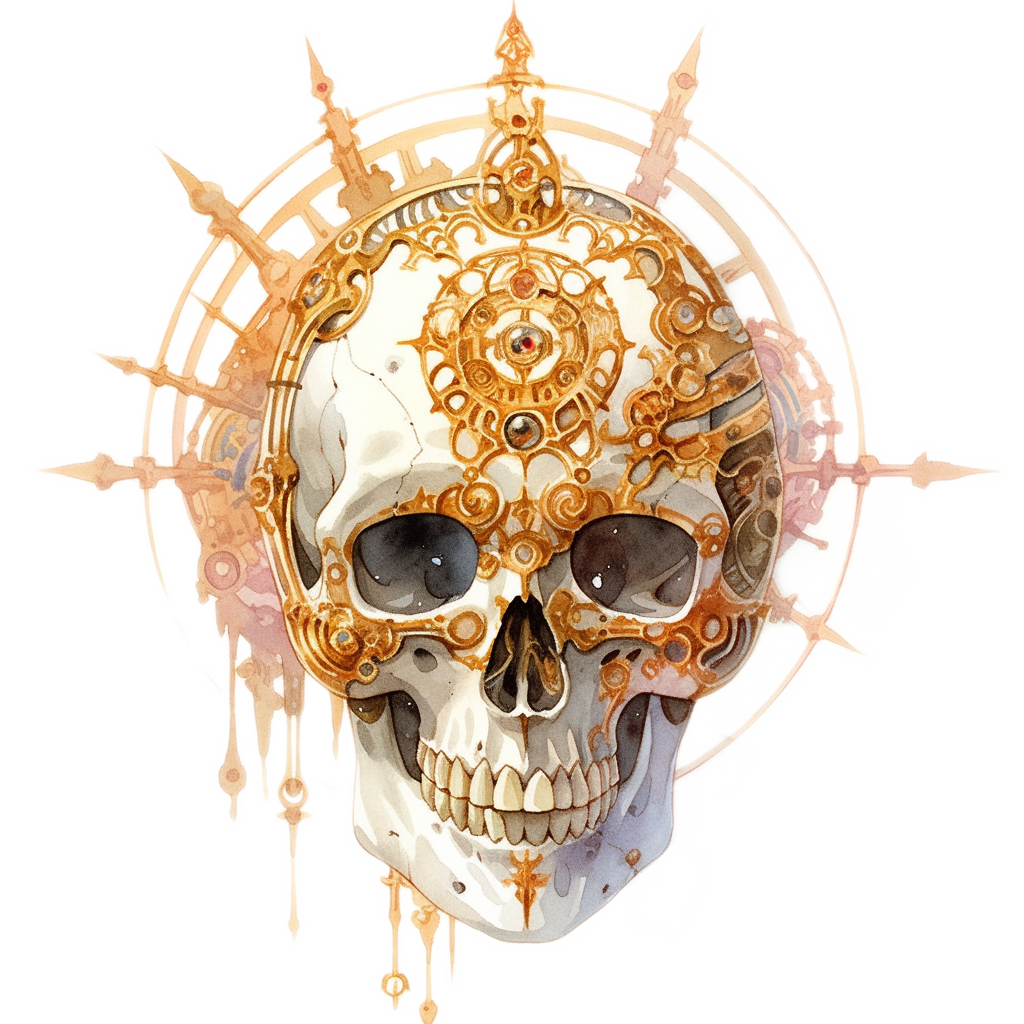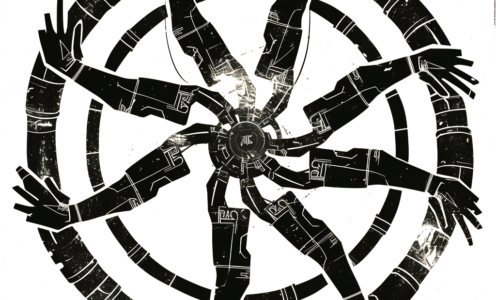The Fleshmongers

The ‘Demi-Modrons’, Sect of Mechanus
“To study the Fleshmongers is to peer into the murky depths of mortal obsession, where the lines between salvation and self-destruction blur into the macabre. I must confess, dear reader, that my fascination with this group stems not from admiration but from horrified curiosity. What drives a being to remake themselves in such grotesque fashion? What compels them to willingly sacrifice their very humanity—or cull their own identity—in the name of redemption? The answers, I fear, would be chilling if they were not soulless.”
At the heart of the Fleshmongers lies their stark philosophy—the belief that the body is the root of all sin and corruption, and that salvation of the soul can only be achieved through the denial of the flesh. To them, the flesh is a burden, a taint that compromises the purity of the spirit. Their grotesque rituals of self-augmentation—replacing limbs, organs, and eventually entire bodies with mechanical components—are, in their minds, acts of devotion. Each bolt, gear, and pneumatic pump surgically implanted into their forms is a step toward absolution, stripping away the sinful body to reveal the unblemished soul beneath. And yet, in their pursuit of transcendence, they bind themselves not to divinity but to mechanisation. The ultimate goal of the Fleshmongers is not enlightenment but a horrific form of dissociation, wherein they cease to exist as individuals and instead become components in an increasingly collective, fleshless consciousness.
—Creed of the Fleshmongers
Since soul can not fend off the sins of the flesh, grace can be regained through its denial.
The name of the Fleshmongers is quite literal, for they fund their terrifying transformations by selling their own discarded body parts. To them, this gruesome trade is not merely pragmatic; it is a symbolic gesture of self-purification. By shedding their ‘corrupt’ flesh and passing it on to others—often to necromancers, unscrupulous alchemists, or fiendish connoisseurs—they believe they are offloading their sin while simultaneously funding their reconstructive surgeries. Their leader, Silicaton (planar construct [they/them] / Fleshmonger / LN), literally embodies the sect’s ultimate philosophy. Silicaton is no longer a mortal in any meaningful sense but a behemoth of gears, tracks, and pipes—a self-propelled fortress wandering the gears of Mechanus. Their remaining biological components, including the nerves and blood, have been distributed across their vast mechanical form, interwoven with tubes and sensory arrays that expand their consciousness into every corner of the construct. To his followers, Silicaton is not merely a prophet but a living cathedral, proof of their theology taken to its extreme.

The Fleshmongers’ presence on Mechanus is a potential threat to its delicate balance. While the half-barmy cutters share the plane’s reverence for structure and order, these macabre practices unsettle the guardians of the clockwork lands. To the ever-logical modrons, the Fleshmongers are an anomaly: Superficially lawful in their desire to transcend mortal limitations but chaotically disruptive in their methods. The modrons tolerate the Fleshmongers so long as their activities do not interfere with Mechanus’ operations, or threaten the physical bodies of modrons themselves—but there have been incidents where Fleshmonger chop-shops or Silicaton’s lumbering form have disrupted the plane’s great gears. In such cases, modron patrols have moved against them, though the Fleshmongers’ ability to act as a hive mind when required has made them surprisingly formidable in evading skirmishes.
In the broader political framework of Mechanus, the Fleshmongers occupy an unsettling niche. They are viewed with unease by the Fraternity of Order, who struggle to reconcile the Fleshmongers’ harsh, self-imposed laws with their own. The Athar, who spurn the very powers who claim to have created mortal bodies, are morbidly fascinated with the Fleshmongers’ rejection of the biological self, though they tend to regard the sect’s reverence for mechanical transcendence as misguided. Unsurprisingly, the Fleshmongers have attracted the ire of planar factions that revere life and organic harmony, such as outsiders, druids and clerics aligned with Arborea or the Beastlands, who view their philosophy as a grotesque perversion of natural law. Yet, perhaps most disturbingly, there are rumours that certain factions within the Dustmen and Bleak Cabal admire—or even secretly fund—the Fleshmongers, viewing their self-annihilation as a form of existential enlightenment.
In the end, the Fleshmongers are part a philosophical paradox and part cautionary tale. Their grim pursuit of purification through mechanical augmentation reveals the danger of taking any doctrine to its extreme. They embody the law of Mechanus in their singular focus and hive-like coordination, true. As a scholar, I cannot help but marvel at the tenacity of their beliefs, disregard for physical pain and the ingenuity of their self-engineering, but I am equally disturbed by how easily they cast aside their identities—and their sanity—in pursuit of a goal both alienating and frankly rather horrifying. Mechanus tolerates them for now, but one wonders how long Primus will allow these bizarre zealots to scuttle across the Great Machine.
BENEFITS: When in close proximity all Fleshmongers share a common set of senses. This hive mind allows them to act as one single unit if they desire, as modrons do.
HINDRANCES: Fleshmongers loose not only their sanity, but also their identities as they progress with their transformations. As such, after 5th-level they can no longer pass for humans—or any other creature for that matter. They cease to exist as individuals at all at about 10th level, instead being subsumed into the Mechanical Collective, usually as a part of Silicaton itself.
Sources: Randir and Jon Winter-Holt


